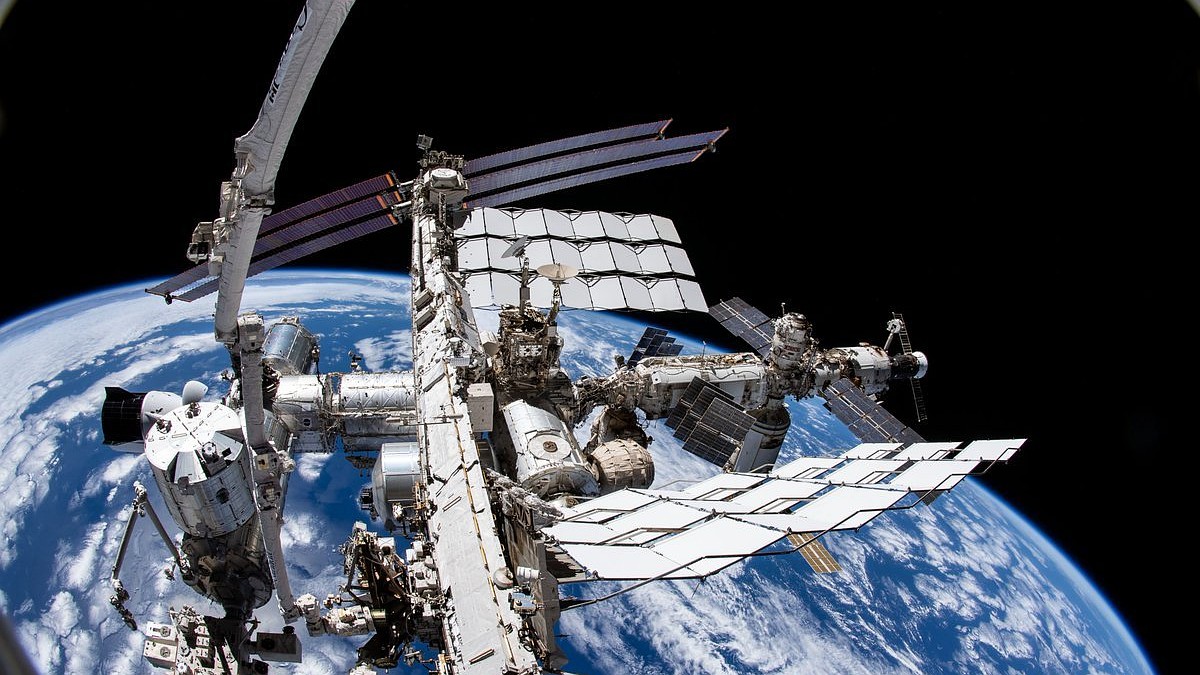Russia’s Roscosmos space agency and the National Aeronautics and Space Administration (NASA) have agreed to extend the agreement on cross-flights to the International Space Station (ISS) until 2025.
According to an end-of-year report issued by Roscosmos, the decision to extend the agreement was made to “maintain the reliability of the ISS as a whole” and to guarantee the presence of both Russian and American representatives on their respective segments of the space station.
The International Space Station (ISS) was launched in 1998 during a period of increased US-Russian cooperation that followed the Cold War “Space Race.” The ISS partners, consisting of the US, Russia, Europe, Canada, and Japan, have committed to operating the orbiting laboratory until 2024, although US officials have expressed interest in continuing until 2030.
In July and December of 2023, Roscosmos and NASA negotiated two significant revisions to their agreement that made cross-flights between the American and Russian parts of the International Space Station (ISS) possible. According to Sergei Krikalev, Roscosmos executive director for manned programs, the additional agreement indicates two more cross-flights to the ISS until 2025.
On October 23, the Russian government approved negotiations between Roscosmos and NASA on signing the second addendum to the agreement on cross-flights to the ISS. The corresponding order was signed by Prime Minister Mikhail Mishustin.
The initial agreement, signed in July 2022, facilitated cross-flights of Russian cosmonauts and American astronauts on the Crew Dragon and Soyuz MS spacecraft from 2022 to 2024. As part of the extended agreement, cosmonaut Alexander Grebenkin is set to join the Crew-8 mission aboard the Crew Dragon spacecraft in the first half of 2024.
Yuri Borisov, Roscosmos General Director, had previously announced the preparation of an additional agreement to extend cross-flights to the ISS until 2025. Kenneth Bowersox, the head of NASA’s manned flight program, expressed the American side’s interest in extending the agreement with Roscosmos “until the end of the ISS project, whenever it comes.”
Currently, two missions are underway within the framework of the agreement, demonstrating ongoing cooperation: the Russian spacecraft Soyuz MS-24, launched in September, and the American spacecraft Crew Dragon-7, launched in August.
Russia has been a crucial player in making the ISS a success, mainly due to its Soyuz passenger vehicle, which served as the only way to transport astronauts to the ISS ever since the US retired its Space Shuttle Program in 2011.
Despite the ongoing collaboration, Russia had previously indicated the possibility of withdrawing from the $150 billion ISS project in 2025. After two decades in orbit, the ISS started to show its age, with occasional air leaks and the breakdown of a critical life-support system. Thus, Russia’s Roscosmos space agency said that it was considering leaving the ISS after its current agreement with international partners runs out in 2024. The announcement about the potential departure from the ISS came amid growing tensions between Russia and the US – the two major space powers – on multiple fronts, with the two countries also accusing each other of militarizing space.







 Azerbaijan and Armenia started the process of demarcation of their border on Tuesday, with the installation of the first border markers based on ge...
Azerbaijan and Armenia started the process of demarcation of their border on Tuesday, with the installation of the first border markers based on ge...
 Armenian sappers commenced on Monday mine-clearance operations in the territories adjacent to the Saint Mary Church in village of Voskepar (Armenia...
Armenian sappers commenced on Monday mine-clearance operations in the territories adjacent to the Saint Mary Church in village of Voskepar (Armenia...
 Iran and Pakistan have signed eight cooperation documents in various fields, and agreed to strengthen ties to fight terrorism in the region.
Iran and Pakistan have signed eight cooperation documents in various fields, and agreed to strengthen ties to fight terrorism in the region.
 President Aliyev emphasized the critical role of the North-South Transport Corridor in fostering transport cooperation between Azerbaijan and Russi...
President Aliyev emphasized the critical role of the North-South Transport Corridor in fostering transport cooperation between Azerbaijan and Russi...



